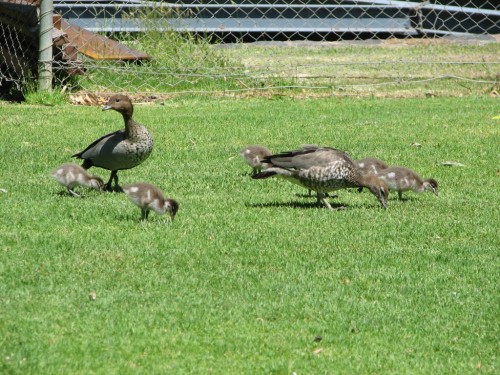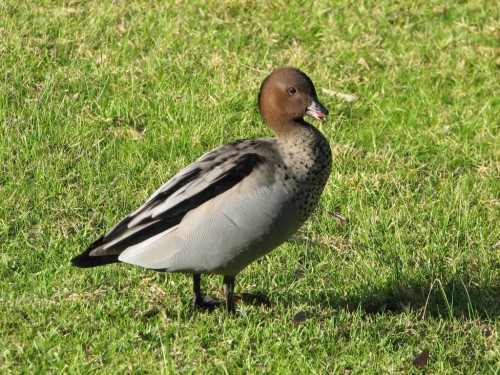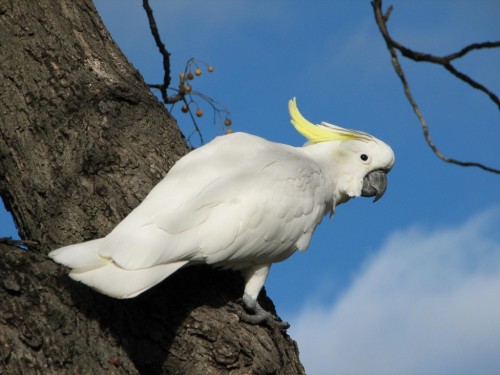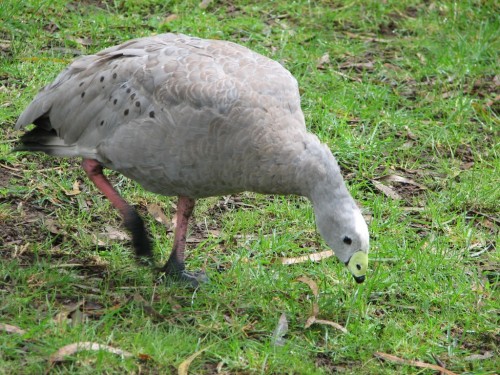Idiom #17 An Ugly Duckling
This week’s idiom: ‘An ugly duckling.’
Meaning:
An awkward, ungainly, unattractive child who develops into a graceful, beautiful adult is said to be an ugly duckling.
Origins:
The expression comes from the Hans Christian Andersen story called The Ugly Duckling. It was first published in 1843 and is widely regarded as a classic children’s story.
A mother duck hatches her brood only to find one duckling larger and uglier than the rest. He was very much a misfit and soon received much harassment from the other barnyard residents who eventually drive him away to fend for himself. After a struggle to survive the ugly ‘duckling’ develops into a beautiful swan.
The moral of the story is that inner beauty will always overshadow outer appearance. Interestingly, the Wikipedia article goes into a deeper analysis than I have here, postulating that this story is possibly a metaphor for Andersen’s own unhappy life.
Example:
As a child she was such an ugly duckling, but look at Sarah’s beauty and grace now.
Idiom #16 A Sitting Duck
This week’s idiom: “A sitting duck.”
Meaning:
Someone or something that is ‘a sitting duck’ is an easy to hit target. Someone who is a ‘sitting duck’ is open to an easy physical or verbal attack.
Origin:
This expression quite obviously comes from hunters, and duck shooters in particular. A sitting duck, on merely bobbing on the surface of the water, as opposed to one swimming, diving, dabbling or flying, is an easy target for the shooter.
Example:
Left alone on stage, he was completely at the mercy of the angry crowd. James felt like a sitting duck.
Disclaimer 1: The writer of this blog in no way endorses duck shooting.
Disclaimer 2: No ducks, nor any other birds, were harmed in taking the photo below.
Please note:Â The photo below shows a STANDING duck. I don’t have a photo of a sitting duck – yet. (So use your imagination.)
Idiom #15 As sick as a parrot
This week’s idiom: “As sick as a parrot.”
It may seem strange but this is one idiom I don’t think I’ve ever come across before reading it in a book of idioms. “As sick as a dog” I am familiar with but that has a different meaning. To be as sick as a dog is to be very sick.
Meaning:
To be as sick as a parrot is to be very disappointed or depressed.
Origin:
This saying may have several origins. In the seventeenth and eighteenth centuries people were said to be as “melancholy as a (sick) parrot.” In thinking about this, I have a theory. Parrots are fairly uncommon in Europe. Some early collectors of birds would have returned to chilly Europe, a climate quite unsuitable for tropical parrots, for example. Naturally the parrots would not have been happy on two or three counts, the cold climate, being in captivity and most likely alone. Can one blame them for being ‘melancholy’ and even becoming sick?
Another origin could have been in relation to a disease called psittacosis, or parrot fever, a common illness in cage birds. This disease is transferrable to humans. Since the 1970s this has been something of a problem for aviculturalists.
A third possible origin relates to its common usage in a sporting context. It has been suggested that this phrase was coined by an imaginative footballer describing his utter despair at losing an important game.
Example:
I was as sick as a parrot when my team lost the Grand Final.
Photo:
I have included below a photo of a very healthy parrot, a Sulphur Crested Cockatoo, a common species here in South Australia and one kept world wide as a pet. This one was very much active and healthy and in the company of a small group of other parrots. It did not look at all melancholy for it was investigating hollows in this tree with the aim of nesting.
Disclaimer: no parrots were hurt or became sick in the making of this article.
Idiom #14 The Goose that laid the Golden Eggs
This week’s idiom: “To kill the goose which lays the golden eggs.”
Origin:
This saying comes from the Aesop’s fable The Goose that Laid the Golden Eggs.
A man and his wife had the good fortune to possess a goose which laid a golden egg every day. Lucky though they were, they soon began to think they were not getting rich fast enough, and, imagining the bird must be made of gold inside, they decided to kill it in order to secure the whole store of precious metal at once. But when they cut it open they found it was just like any other goose. Thus, they neither got rich all at once, as they had hoped, nor enjoyed any longer the daily addition to their wealth. (From Wikipedia)
Meaning:
The commonly used meaning of this expression relates to the act either and individual or an organisation that abuses a source of income or profit through excessive greed to the point where that income is destroyed.
Example:
By not looking after the needs of his customers, the shopkeeper killed the goose that laid the golden eggs.
Photo:
The photo below shows a Cape Barren Goose, an Australian bird. It does not lay golden eggs. Some entrepreneurs tried to harvest these birds from the wild for use in their restaurants here in South Australia. They were soon stopped because the total world population is only something like eight to ten thousand. Such slaughter would inevitably have resulted in “killing the goose that laid the golden eggs.”
Idiom #13: A feather in one’s cap
This week’s idiom:
“A feather in one’s cap.”
Meanings:
A special achievement or acknowledgment of one’s work or efforts is said to be “a feather in one’s cap.”
Origins:
A number of different cultures around the world celebrate victory over an enemy or the killing of an enemy by placing a feather somewhere on the head, as in the head-dress of the American Indians. Feathers still feature prominently in the ceremonial apparel of many cultures, from the highland chiefs in Papua New Guinea with their elaborate head-dresses made from the feathers of a Bird of Paradise through to the ostrich and heron feathers used in the cap of members of the Most Noble Order of the Garter in Great Britain.
Today, the common expression is used of anyone who has accomplished some special achievement.
Example:
- Winning the seven year old race on Sports Day is certainly a feather in your cap.



